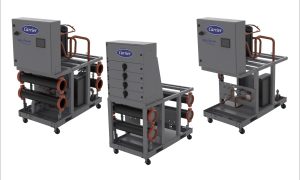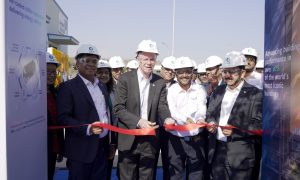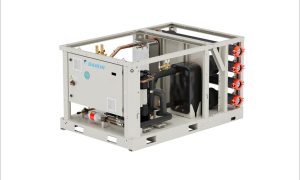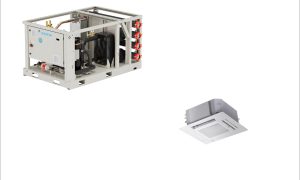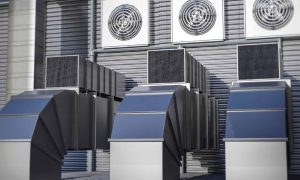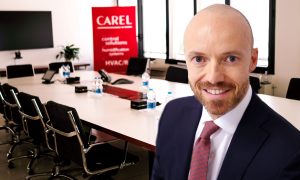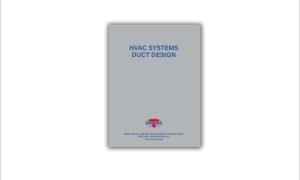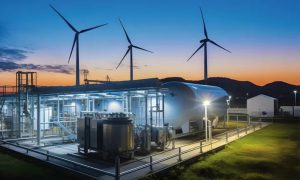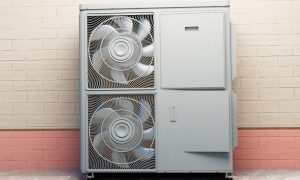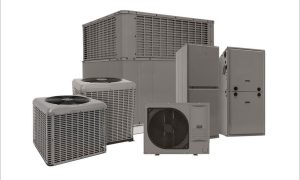Pankaj Mehta, Managing Director at Carrier Transicold India & South Asia, emphasized Carrier’s dedication to reducing environmental impact. Talking about Carrier Transicold Truck & Trailer energy efficiency & electrification and the roadmap to achieve net-zero emissions by 2050 which aligns with addressing urgent global challenges. Amidst rising demand for HVAC and refrigeration, their strategic focus aims to drive sustainability in key sectors.
As the world recognizes the increasing urgency of climate change and secular trends continue to increase the demand for HVAC and refrigeration products, Carrier is committed to aggressive actions that minimize our environmental impact and address the most critical challenge our planet has ever faced. Our commitment involves a comprehensive plan. Through our road map to net zero, we are driving to zero emissions from the development and operation of our products by 2050. This commitment is driven by the urgency of our planet’s needs and the imperative for our business.
Growing demand meets increasing urgency
As the demand for HVAC and refrigeration products rises due to ongoing trends, it becomes crucial to take bold measures that reduce our environmental footprint and tackle the most pressing challenge our planet has ever encountered.
While conversing about building a more sustainable future on a large scale, Carrier is dedicated to taking a leadership role in sustainability, climate, and energy management. Through leading positions in multiple global markets, an unmatched base of sustainable, efficient in-force and replacement units and projected growth of our industry due to ongoing secular trends empower us to catalyze substantial and sustainable change, steering the world towards achieving net-zero goals. We are fundamentally reshaping our business to become a worldwide authority in intelligent climate and energy solutions. This transformation involves strategically reshaping our portfolio by emphasizing electrification, integration, and resilience.
In December 2023, Dave Gitlin, CEO of Carrier, highlighted Carrier’s road map to Net Zero at the Fortune Global Forum in Abu Dhabi, United Arab Emirates. Carrier has developed a plan to reduce its greenhouse gas (GHG) emissions in line with the Science Based Targets initiative (SBTi) to limit global warming to 1.5⁰ C. This builds on Carrier’s ambitious 2030 Environmental, Social, and governance (ESG) goals and further supports decarbonisation efforts.

Carrier’s Environmental, Social, and Governance (ESG) objectives and our commitment to develop sustainable cold chain solutions play a pivotal role in reducing the carbon footprint within the transportation and food systems. Our refrigeration business is part of 2 major global industries: Transport and food systems —both impacting the environment.
Temperature-controlled transportation systems incorporate Carrier cold chain solutions and equipment, encompassing container, rail, air, and truck & trailer types. Approximately 20 percent of greenhouse gas emissions stem from transportation, with logistics contributing to 34 percent of this share.
Aviation and maritime transportation each account for 11 percent of total emissions. Despite this, Transportation Refrigeration Unit (TRU) emissions constitute only a minimal fraction of the overall greenhouse gases (GHGs) emitted by the transport sector.
In the food system industry, emissions reached 18 Gt CO2 equivalent annually worldwide, making up 34 percent of total greenhouse gas emissions. The production phase alone contributes to 2/3 of these emissions, approximately 71 percent as of 2021. The remaining 29 percent is attributed to retail, transport, consumption, fuel production, waste management, industrial processes, and packaging. Despite this significant impact, transport refrigeration is typically responsible for just a small fraction of the total greenhouse gases (GHGs) emitted by the food sector.
Sustainability initiatives in transport decarbonisation and cold chain solutions
Carrier, a leader in sustainability, is dedicated to raising the bar in environmental standards and technologies. Committed to reducing the carbon footprint, the company is actively contributing to transport decarbonisation while ensuring the efficiency and performance of the products remain uncompromised.
Our approach encompasses a multi-faceted strategy. Building upon decades of sustainability leadership, Carrier focuses on developing innovative technologies and services. We aim to tackle sustainability challenges by continuously exploring alternative fuels, electrifying the cold chain, enhancing product energy efficiency, researching refrigerants with lower Global Warming Potential (GWP), reducing noise pollution, and introducing advanced connected technologies for tracking, monitoring, and analyzing cold chain performance.
As part of our Environmental, Social, and Governance (ESG) goals, Carrier is steadfast in its commitment to enabling customers to save one gigaton of carbon footprint by 2030. Carrier plans to invest over $2 billion by 2030 in developing healthy, safe, sustainable, and intelligent building and cold chain solutions to achieve this. These solutions will integrate sustainable design principles and reduce life cycle impacts. Carrier’s refrigeration segment concentrates efforts in energy efficiency and electrification, adoption of lower GWP refrigerants, and reduction of food loss and global cold chain development.
Since 2020, Carrier has invested over $730 million in sustainable research and design, focusing on sustainable refrigeration solutions, electric cold chain technologies, and digital solutions for improved connectivity and effectiveness in the cold chain.

Carrier Transicold, a division focused on refrigeration technology, has pioneered electrification for over two decades. Starting with the E-Drive™ all-electric technology in 1999, we transitioned from mechanical transmissions to electricity, leading to the full electrification of refrigeration units and the replacement of fossil fuel engines. In line with the evolving trends in the automotive industry, Carrier Transicold has expanded electrification to the truck OEM industry, offering a wide range of electrical refrigeration systems globally. We provide electric solutions for 100 percent of European vehicle ranges, battery packs, and power modules to meet industry demands.
Regarding energy efficiency, Carrier has developed high-efficiency refrigeration units for road transport. These units include trailer units with stage V multispeed engines, reduced fuel consumption, and compatibility with biofuels or compressed natural gas, ensuring sustainability while maintaining performance. To further support customers in meeting evolving standards and regulations, Carrier Transicold has designed engineless refrigeration technology systems that prioritize energy efficiency and environmental responsibility, helping to manage costs while complying with noise emissions and pollution limitations.
Cookie Consent
We use cookies to personalize your experience. By continuing to visit this website you agree to our Terms & Conditions, Privacy Policy and Cookie Policy.


